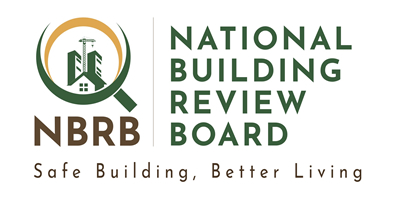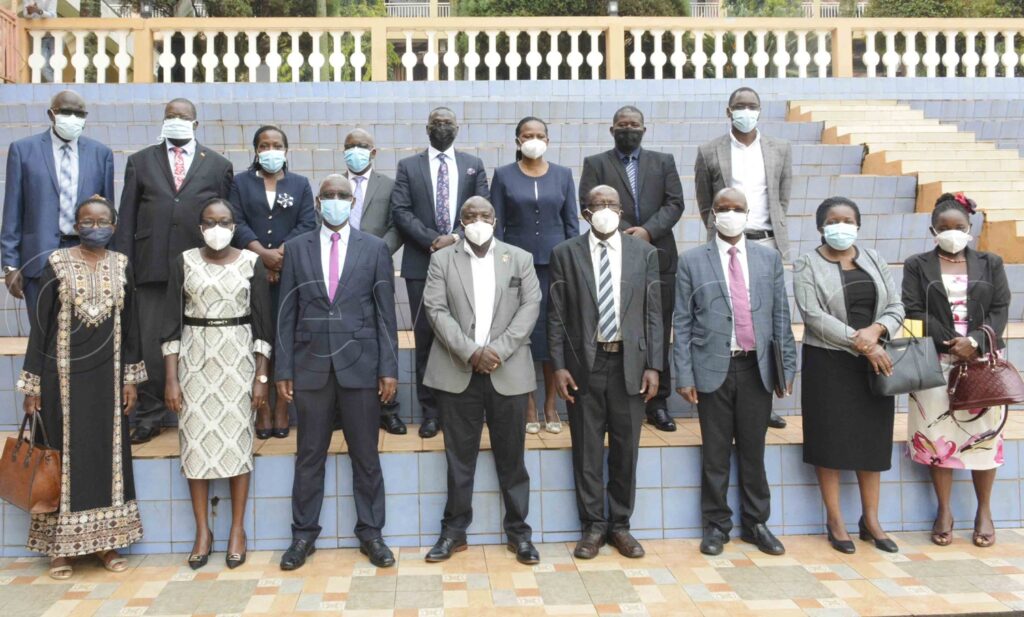Construction sites, which are found not to be following the building laws and regulations should be stopped or demolished, the minister of Works and Transport, Gen. Katumba Wamala has directed.
While calling relevant authorities to action, he blamed the continued collapse of building in the country for the failure to implement building laws.
Wamala said well as the laws to guard against the calamities and irregularities in the construction sector are available, the implementation agents have failed to effectively enforce them, which causes substandard operations leading to endless cases of collapsing structures around the country.
The minister was inaugurating the new board of governors of the National Building Review Board (NBRB) on Friday. He directed the regulators to ensure that every construction follows the building laws, failure to which should lead to halting or demolishing.
The government enacted the Building Control Act, 2013 in a bid to consolidate, harmonize and amend the law relating to the erection of buildings.
The law, which came into force in 2018, also established the NBRB and building committees to promote and ensure planned, decent and safe building structures. NBRB supervises the building committees in different local governments.
The new board of governors, which supervises the secretariat, will serve for the next three years. It was sworn in by Acting Principal Judge Musa Ssekana at Hotel Africana.
Gen. Wamala instructed the board to inspect all the activities of the building committees since some of them are new and short of professionals. Last month, the NBRB secretariat revealed that some districts like Fort Portal and Lira don’t have building committees.
“You see what happened in Kisenyi, where the city council was saying it didn’t know how the building came about. How can a building reach that level and you don’t know how it came to be set up there? For this board, we expect that, if it requires bite, you should bite,” Wamala said.
He encouraged the board, which consists of 16 members of different professions, to resist any threats from any person as they exercise their duties and mandate.
“Don’t be threatened by anyone. If you find the building lacking the requirement, and decide to stop, stop it. If it requires breaking, let us break it, so that people start getting discipline,” Wamala said.
“In Uganda, you don’t look for laws, there are available, but they are not followed. We want the board to see that the laws are followed. Join other agencies, up your game, to ensure that the lives of Ugandans are protected,” Wamala said.
Wamala said building and construction is a growing industry, especially in the emergence of the new cities, where many people want to build.
He also condemned cases of buildings whose construction plans were approved with underground parking but later used partitioned them into shops. He said this has brought challenges to movement in Kampala.
“The cars which should be parked in the building are now parked on the streets, yet the city is not growing any wide. This is causing traffic jams,” he explained.
He said the board should carry out an inspection to rectify the issue, noting that those who don’t abide should have their buildings closed.
Wamala also encouraged the board to promote the construction of building with the provision of water harvesting. He said that the water that is collected from the roofs has posed a threat the infrastructure such as roads.
“When you go to Makindye when people built, they never people put provisions for collecting water, and a big amount of it ends up in the road. It destroys our roads,” he said.
Arch. Edward Simbwa said the Building Code provides for water harvesting as one of the building standards, but the challenge has been the lack of awareness of the building committees about this requirement.
“The building committees should be able to scrutinize these drawings and ensure that that aspect is taken care of. We shall sensitize to ensure compliance to this aspect of the code,” Simbwa said.
Emmanuel Male, the new board chairperson, said since the first term has mainly been about setting up the systems as well as building a database.
He said after reviewing the different collapses, they are noticing the pattern, which will help them in identifying and solving the problem. He said the new Building Industry Management System (BIMS) will help to solve the bottlenecks in the inspection process.

